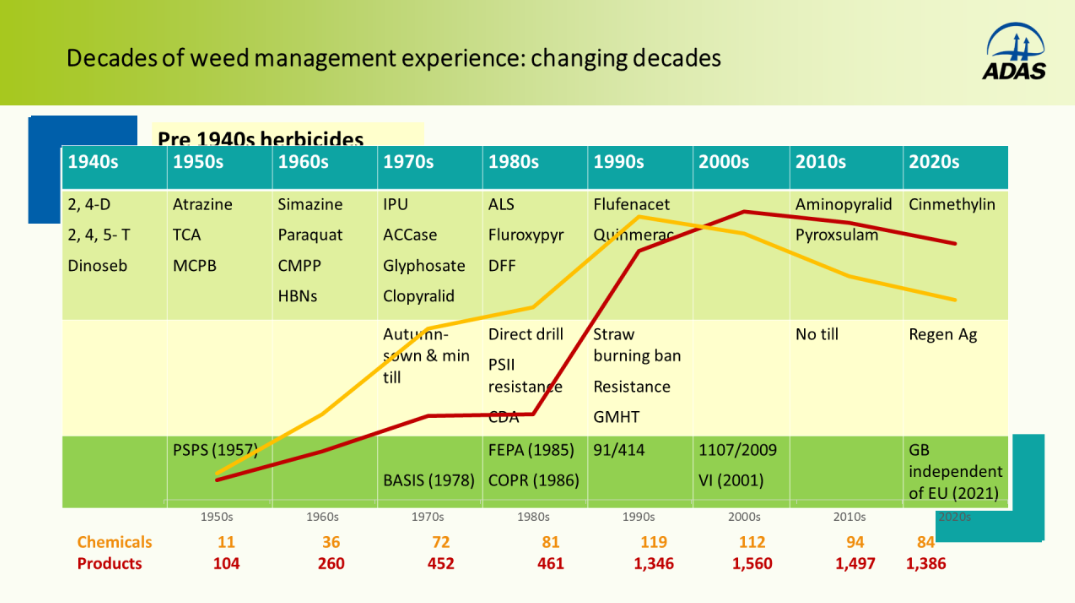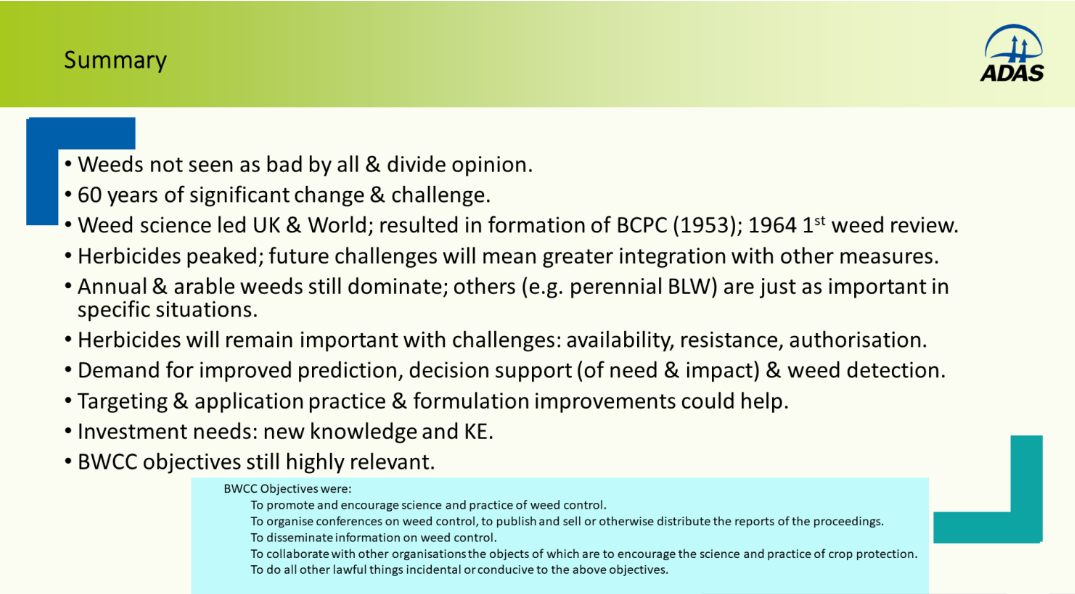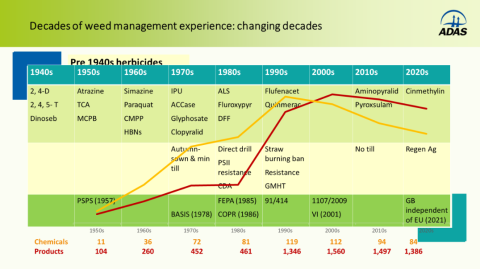I had the pleasure of preparing and presenting a review of weed management for the BRITISH CROP PRODUCTION COUNCIL 60th Annual Review of weed management on 2 November 2023.
Origins of BCPC and weed meetings
Weed scientists and agronomists, from ADAS, organised an ad hoc meeting in November 1952 to "explore attitudes, review current work on weed control and identify outstanding problems and proposals for dealing with them". This led a year later to a second meeting in Harrogate where the constitution of the British Weed Control Council (BWCC) was agreed. The first biennial British Weed Control Conference was held in 1956, with 1,745 delegates and 132 papers published in 3 volumes. The first Annual Review of Herbicide Usage was in 1964, changing to Annual Review of Weed Control in 1969.
The British Insecticide & Fungicide Council (BIFC) started in 1962. In 1965 (controversially to some the time!), BWCC & BIFC agreed to merge to form British Crop Protection Council, now British Crop Production Council (BCPC).
Weed control over 60 years
There have been significant challenges and many constants. The UK weed science evidence base built up through the second half on 20th Century provided excellent information to build on. Summarised in the Weed Control Handbook: Principles it is still as relevant now as it was then. Much valuable information was also collated into the Arable Weed Encyclopaedia, such as on seed biology and seedbank persistance.
The availability and reliance on herbicides peaked in the 1990s. Since then, decreasing product availability and increasing resistance, has resulted in continued integration with the cultural measures herbicides 'edged out'. It is clear that with major management options of crop rotation, cultivation and herbicides (rate, timing, application efficacy) if any one is reduced or less effective ALL the others need to be even better optimised, along with other beneficial practices (which include further non-chemical opportunities, such as within crop cultivation, cutting, crop & varietal competitiveness).
The future of weed management will demand increased need for prediction, decision support (of need and impact) and weed identification. Targeted and improved application technology will further help, along with further formulation improvements. We build on robust information, however, it will also need to be supported by generation and exchange of new & existing knowledge.


My full presentation can be found at https://www.bcpc.org/wp-content/uploads/2023/11/2-BCPC-Weeds-60-years-Nov-2023-FINAL-for-web-James-Clarke.pdf. I am very grateful to those who provided information and responded to the survey (see below if you still wish to participate). All the presentations can be found at https://www.bcpc.org/events/bcpc-weeds-review-2023.




